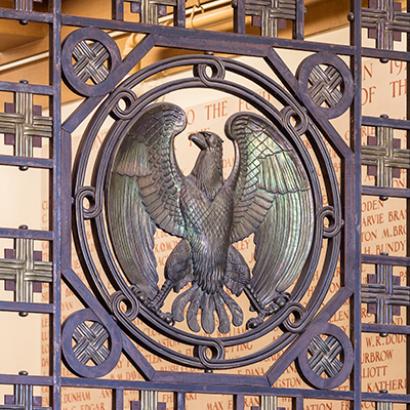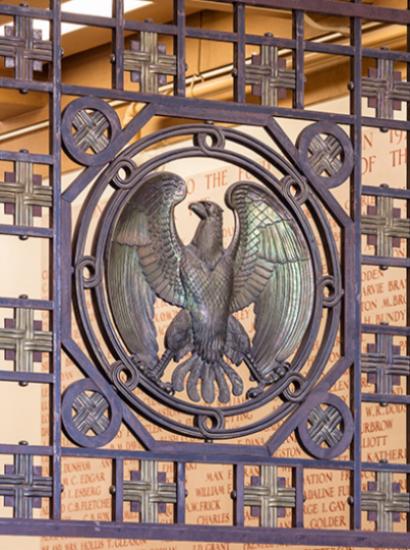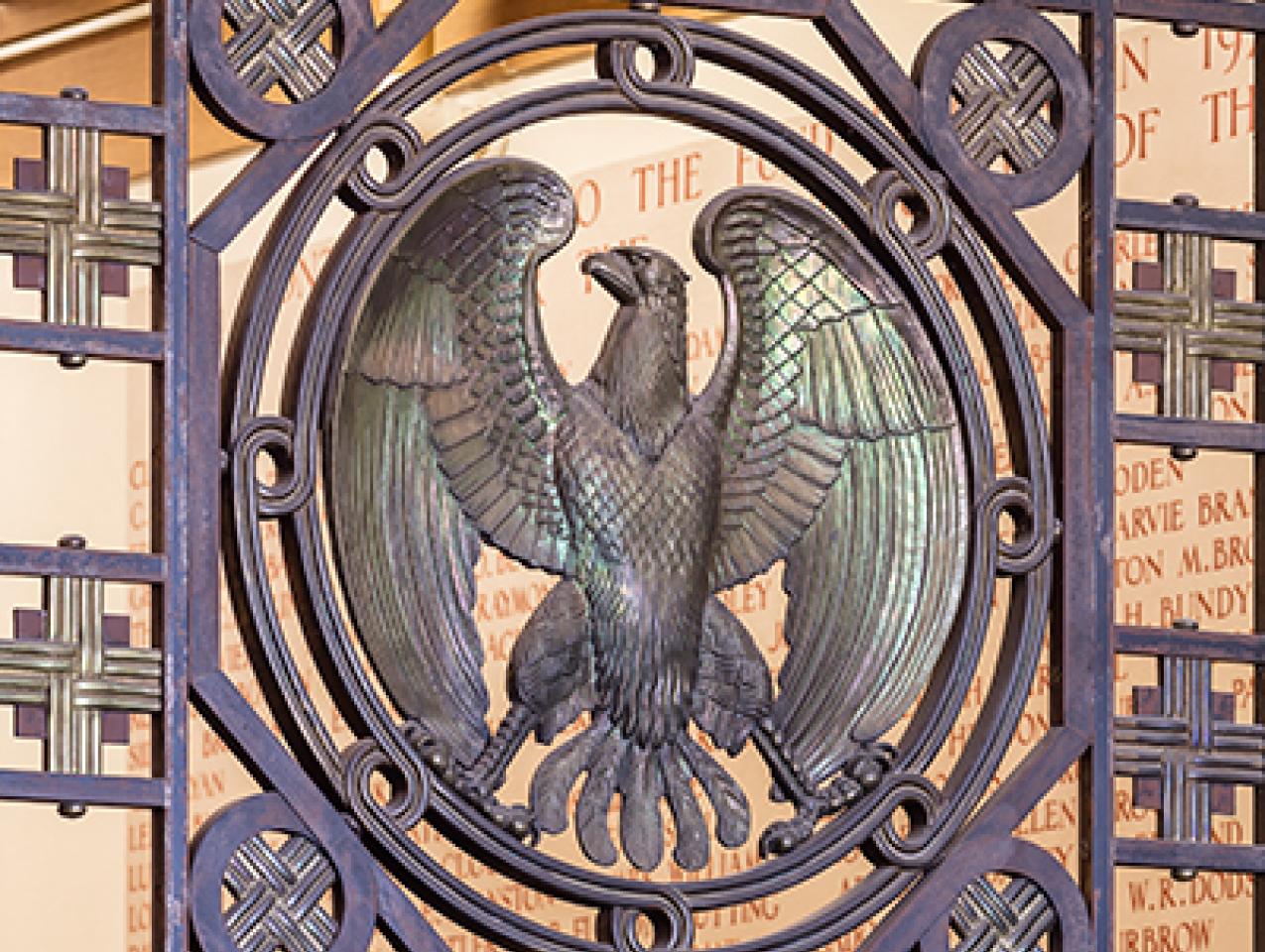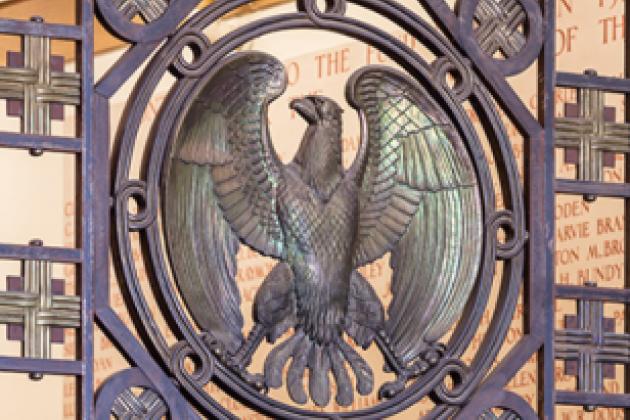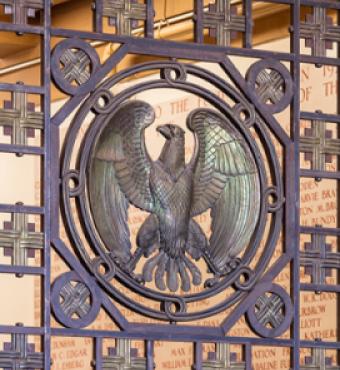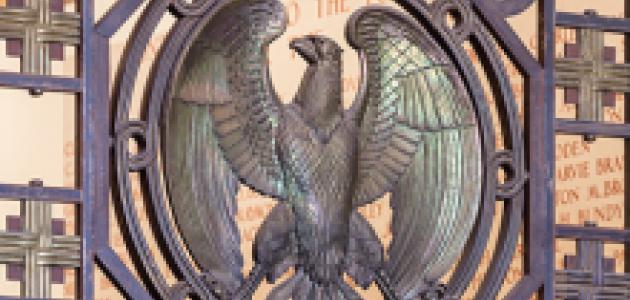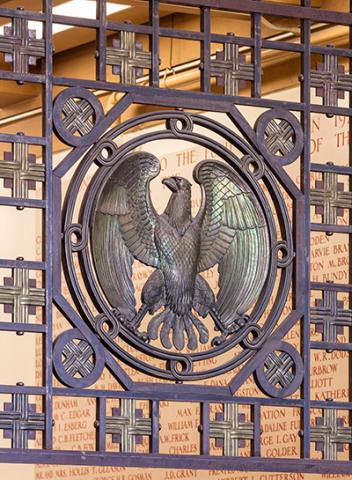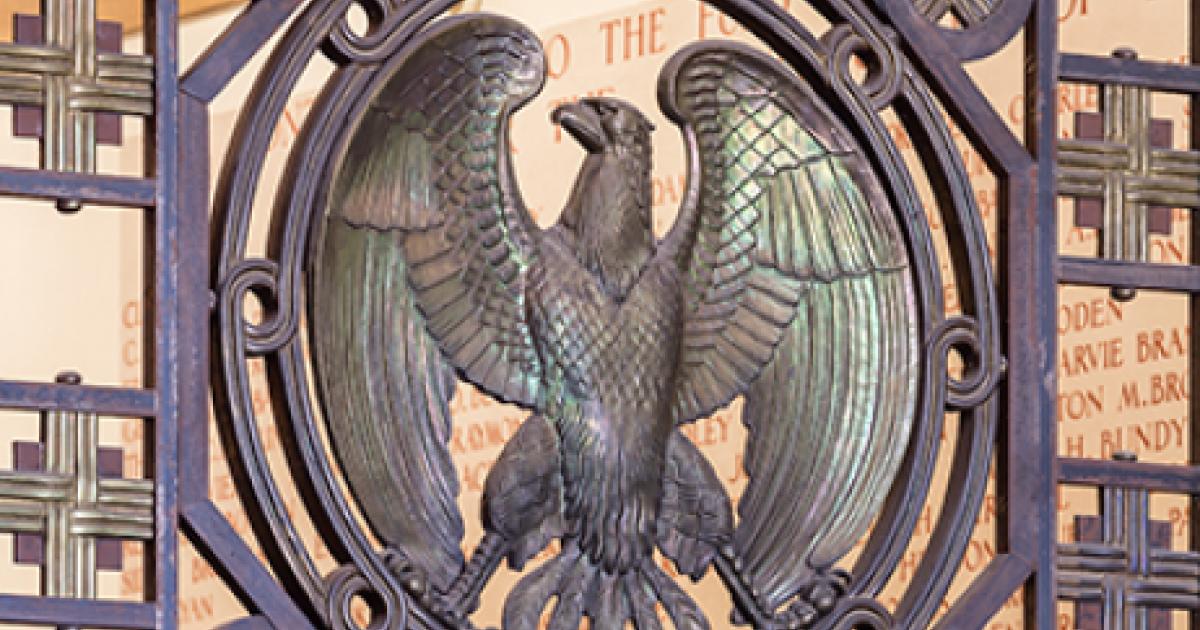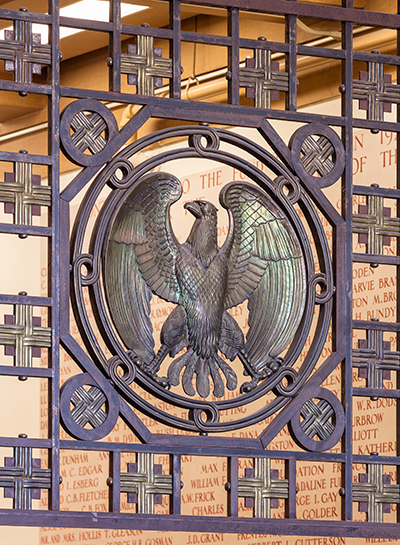
When Hoover historian Jennifer Burns approached the challenge of organizing a new workshop several years ago, the thinking was big picture and collaborative: embrace scholarly interest on the wide-ranging subject of political economy.
“The Hoover Archives Summer Workshop on Political Economy was the brainchild of Eric Wakin,” said Burns, referring to the deputy director of the Hoover Institution and the Robert H. Malott Director of the institution’s Library & Archives.
Political economy typically is understood as interdisciplinary studies drawing upon economics, political science, law, history, sociology, and other disciplines.
As Burns explained, the Library & Archives at the time had two annual workshops—one on Authoritarianism and Democratic Breakdown and another on Modern China. Wakin realized that the collections on US history, political history, and intellectual history could also serve as the basis of a workshop on political economy.
“These collections weren’t as well known yet. Eric asked me for ideas and if I’d be willing to spearhead a new workshop, so I came up with political economy as a theme that would unite a diverse group of scholars,” she said.
The fifth annual installment of Hoover’s Workshop on Political Economy is slated for June 25-29 on campus. In the wake of setting up the political economy workshop, Hoover also established the Workshop on Latin American Studies.
Wakin said, "The four annual workshops offer opportunities for scholars to engage with each other on some of the most important issues related to history, economics, national security and other matters while also using the collections of the Hoover Library & Archives. The freedom to gather in a small group setting for one or two weeks and focus on the meaning and role of history in the world amidst the greatest collections on war, revolution and peace in the last century is truly unique."
Inquiry and research
Each year, a call for applications is made for scholars who wish to join the workshop. If accepted, they are free to browse the extensive holdings of the Hoover Library & Archives and to study economic thought and thinkers such as Karl Popper, Milton Friedman, and F. A. Hayek, among others. The workshop typically attracts historians, economists, sociologists, and political scientists.
While pursuing their research projects, attendees also join daily roundtables and discussions on economics, political theory, and history. The spirit is interdisciplinary, ranging back and forth across fields of study and academic inquiry.
Steven Teles, associate professor of political science at Johns Hopkins University, is this year’s keynote speaker. He recently co-authored The Captured Economy: How the Powerful Enrich Themselves, Slow Down Growth, and Increase Inequality.
“Workshops like this one are essential for the development of new, pathbreaking scholarship," Teles said. "It’s very important to bring scholars—many of whom may not have other grants to support their work—to dig around in Hoover’s phenomenally deep archives. Great strides in scholarship, and in particular the cementing of important scholarly fields, typically come as a result of the creation of new networks and relationships."
He noted, "This workshop does both, and it is a testament to the leadership of Burns that she’s created such a powerful group of people studying political economy from a historical perspective so quickly.”
Last year, Leah Wright Rigueur, an assistant professor of public policy at Harvard University and author of The Loneliness of the Black Republican: Pragmatic Politics and the Pursuit of Power, gave the workshop’s opening remarks.
Freedom and choice
As the testimonials reflect, the workshop’s past participants reaped significant rewards by diving deeply into Hoover’s collections as well as by joining the discourse with fellow scholars. Marc-William Palen, a historian from the University of Exeter in England, examined the collections of David Starr Jordan, Rosika Schwimmer, and Alice Park.
“I found a great deal of correspondence relating to my new book project on the political economy of the early twentieth-century global peace movement,” Palen said. “Being able to undertake research at the Hoover Institution has therefore provided me with a very fruitful starting point for the new book project.”
University of Pennsylvania historian Amy Offner spent her week of scholarly adventure working on a book on industrial ownership and management in the wake of World War II.
“Working in the papers of Donald Dozer, Winifred Armstrong, and Garland Farmer, I tracked initiatives to protect and promote foreign direct investment in Latin America and Africa, as well as efforts to restructure corporations in order to survive the challenges of economic nationalism, political revolution, and labor and environmental movements in the Third World,” Offner said.
Hoover economist Milton Friedman is a towering presence in this particular workshop as well as at Hoover overall. Brent Cebul, a historian with the University of North Carolina, Charlotte, examined the Collected Works of Milton Friedman and links between “fan correspondence” and the thinker’s economic ideas.
“I’ve got a wonderful set of resources now charting examples of how writers used Friedman’s emphasis on equality, freedom, and choice to reframe longer-standing debates about racial inequality, welfare, and affirmative action,” Cebul said.
When Kevin Brookes attended the workshop in 2015, he was in the midst of writing a political science dissertation for his doctoral degree at the University of Grenoble in France. He found a treasure trove in the Hoover collections.
“I pursued my research on the connection of the international intellectual movement for the promotion of classical liberalism and the French movement sharing the same aim from the 1970s,” said Brookes, who perused files on the Mont Pèlerin Society, Friedrich A. Hayek, Milton Friedman, and the Institute of Economic Affairs.
Thanks to those offerings, he wrote some chapters of his thesis and developed a firm foundation on the French revival of classical liberal ideas and its roots in such international groups as the Atlas Network and the Mont Pèlerin Society in the United States.
MEDIA CONTACTS:
Clifton B. Parker, Hoover Institution: (650) 498-5204, cbparker@stanford.edu







